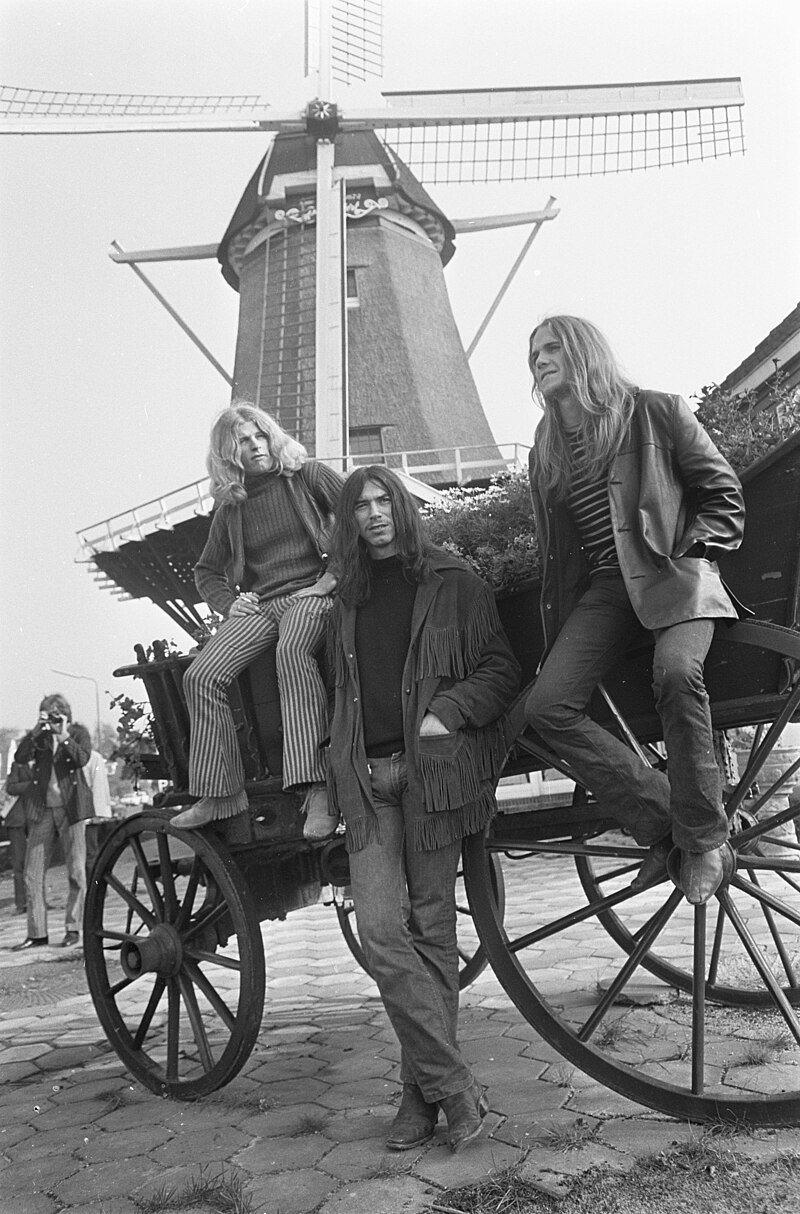Introduction to Blue Cheer
Blue Cheer were an American rock band whose charting singles were “Just a Little Bit” and “Summertime Blues” during the late 60s music era. This classic rock group hailed from San Francisco and was formed by bassist Dickie Peterson, who also became its frontman. One of the earliest “power trio” bands, Blue Cheer’s career was nevertheless rocked by numerous lineup changes especially during the early years of their career, and extended years of lying low. In 1999 Peterson and some of his longtime members of Blue Cheer reformed again and continued to perform until his death in 2009. More on Blue Cheer here in this article!
Early years and their only chart hit with “Summertime Blues”
Blue Cheer was the brainchild of bassist Dickie Peterson, a resident of San Francisco’s Haight Street where the sixties music and “hippie” scene were beginning to blossom. In 1967, Peterson recruited Leigh Stephens (guitar) and Eric Albondra (drums), making the founding lineup of the group. However, Albondra was later replaced by Paul Whaley, but Albondra continued to work for as a session musician for the group. A couple of new recruits consisted of Jerre Peterson (Dickie’s brother) and Vale Hamanka joined as the band’s new guitarist and keyboardist, respectively.
However, due to unspecific reasons Blue Cheer became a trio with Dickie Peterson, Leigh and Paul. They moved on, releasing their first single “Summertime Blues,” actually their cover of Eddie Cochran’s original. It peaked at #14 on the Billboard Hot 100 in 1968. Their debut album Vincebus Eruptum, peaked at #11 on the Billboard 200 album chart in that same year.
The band released another single “Just a Little Bit” also in 1968. From their second album Outsideinside, it peaked at #92 on the Hot 100. Unless you count that single, Blue Cheer are mostly considered a one-hit wonder.
Lineup changes and career in the 1970s
The band yet again went through another lineup change. Stephens left and was replaced by a new guitarist Randy Holden (ex-Other Half member), but Holden himself soon left too. During the early 1970s the band had members that came and went: guitarist Tom Weisser, drummer Mitch Mitchell, keyboardist Ralph Burns Kellogg, another drummer Norman Mayell, guitarist Bruce Stephens (no relation to Leigh), and another musician Gary Lee Yoder. Despite the consistent lineup changes they managed to finish their third LP New! Improved! (#84 on the Billboard 200) You may also read our article, “How Did Mitch Mitchell Revolutionize Rock Drumming Yet Remain Underrated?” to learn more about the contributions of Mitch Mitchell in classic rock.
Blue Cheer split in 1972, but about two years later they got back together but only to play some tour dates. Dickie was still the leader while his brother Jerek returned, and guitarist Ruben de Fuentes and drummer Terry Rae joined the group.
After three years of inactivity, Blue Cheer resurfaced in 1978 or 1979. For the time being, the lineup consisted of Dickie, guitarist Tony Rainier, and drummer Mike Flack.
Career in the 1980s and 1990s
Blue Cheer went on an extended hiatus again before Dickie reformed the band in 1984. Throughout the decade they mostly toured along with classic rock acts as well as new bands emerging at that time. This year also witnessed the release of their seventh LP The Beast Is Back.
Dickie Peterson and Whaley moved to Germany during the early 1990s, and stayed there until Peterson returned to the US in 1994. By the time he came back to his home country, Blue Cheer went dormant again. In 1999 the reformed again with Peterson, Whaley and guitarist Andrew “Duck” MacDonald, who had joined Blue Cheer in the 1980s.
Blue Cheer in the 21st century, death of Dickie Peterson and eventual disbandment
This lineup of Peterson, Whaley and MacDonald was the longest-standing configuration of Blue Cheer for the most time. They continued recording and touring until Peterson’s death from cancer on October 12, 2009. Peterson, aged 63, was in Erkelenz, Germany when he died. His demise led to the breakup of the band, this time for good.
Despite having notched only a couple of hits, as the years passed Blue Cheer is now seen as one of the pioneers of heavy metal. Many classic rock and oldies music fans may agree to that!

